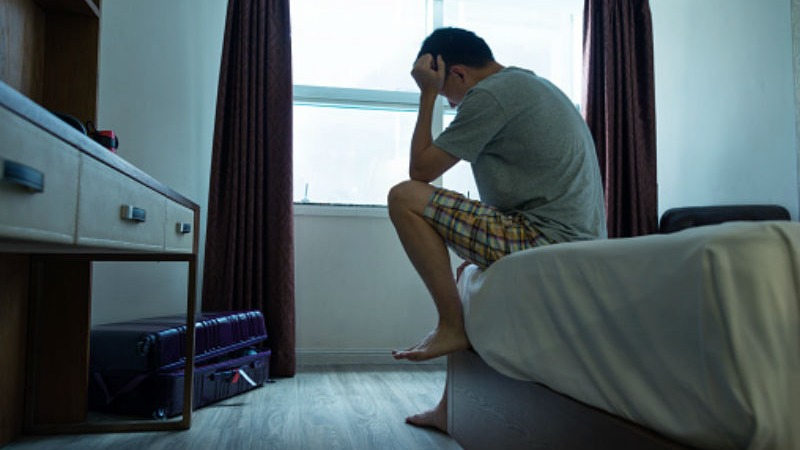The stuff of nightmares: Sleep deprivation’s devastating consequences
MDlinx Sep 14, 2023
The healthcare system heavily relies on dedicated physicians who often work long hours under immense pressure to provide the best care possible.

However, around 30% of physicians suffer from at least one sleep disorder, including insomnia, obstructive sleep apnea, restless leg syndrome, and shift-work sleep disorder.
Weaver MD, Robbins R, Quan SF, et al. Association of sleep disorders with physician burnout. JAMA Netw Open. 2020;3(10):e2023256.
These issues can stem from a lack of restorative sleep following night shifts, extended or rotating shifts, on-call duties at night, and taking on extra work to settle debts.
Kancherla BS, Upender R, Collen JF, et al. Sleep, fatigue, and burnout among physicians: an American Academy of Sleep Medicine position statement. J Clin Sleep Med. 2020;16(5):803–805.
Real-life consequences
According to CDC surveillance data, sleep disruptions in healthcare workers have resulted in the following issues:
Shaik L, Cheema MS, Subramanian S, et al. Sleep and safety among healthcare workers: the effect of obstructive sleep apnea and sleep deprivation on safety. Medicina (Kaunas). 2022;58(12):1723.
-
A 36% increase in serious medical errors.
-
A five-fold rise in significant diagnostic errors.
-
Twice as many attention lapses during night shifts.
-
A 61% increase in needlestick and sharp injuries after working more than 20 consecutive hours.
-
Double the risk of a driving accidents when commuting home after extended work hours.
Additionally, reports indicate a 300% increase in medical errors, leading to patient fatalities.
Medication errors
The risk of procedural complications increases by 1.7 times when physicians get less than 6 hours of sleep.
Rothschild JM, Keohane CA, Rogers S, et al. Risks of complications by attending physicians after performing nighttime procedures. JAMA. 2009;302:1565–1572.
In an interview with The Guardian, a general physician trainee shared a disturbing account of a serious mistake during an exhausting 9-hour shift in the emergency department.
Sleep deprived NHS doctors: ‘I realised my error when the patient collapsed.’ The Guardian. January 17, 2022.
Deprived of sleep and basic necessities, such as bathroom breaks and food, the doctor inadvertently administered IV amoxicillin to a penicillin allergy patient, leading to the patient's collapse.
The doctor immediately realized the error, and the patient was saved with prompt treatment.
Another medical professional, a consultant, confessed that they were oblivious to the debilitating effects of sleep deprivation. “My sleep deprivation affected my daily work, and I didn’t realize it until a near miss happened. I’m now off the on-call rota on health grounds.”
The worst of it
To highlight the tangible consequences of sleep-deprived doctors, we turn to a poignant case that has left an indelible mark on the medical community.
In March 1984, 18-year-old Libby Zion tragically lost her life at New York Hospital due to a medication-prescribing error while under residents' care in a grueling 36-hour shift.
Duty Hours and Patient Safety. PSNet. September 7, 2019.
This devastating incident served as a wake-up call, bringing attention to the potential reduction in patient safety from physician fatigue.
While it is challenging to definitively pinpoint lack of sleep as the sole cause of adverse patient outcomes in every case, the evidence overwhelmingly suggests its strong influence.
Impaired empathy and pain management
A recent international study conducted by American and Israeli researchers discovered that resident doctors were less inclined to prescribe pain medication during night shifts compared with daytime shifts. This trend persisted after accounting for other confounding factors, suggesting decreased empathy among physicians for patients’ pain during night shifts.
Choshen-Hillel S, Sadras I, Gordon-Hecker T, et al. Physicians prescribe fewer analgesics during night shifts than day shifts. Proc Natl Acad Sci U S A. 2022;119(27):e2200047119.
“When fatigue sets in, we in the medical and nursing team are less empathetic with patients and colleagues, vigilance becomes more variable, and logical reasoning is affected, making it hard for us to calculate, for example, the correct dose of drugs a patient might need,” a consultant anesthetist told The Guardian.
Sleep-deprived medical staff ‘pose same danger on roads as drunk drivers.’ The Guardian. June 4, 2022.
A danger to themselves
Dr. Ronak Patel, a 33-year-old trainee anesthetist, tragically lost his life in a car accident after three consecutive night shifts at Norfolk and Norwich Hospital.
Half of junior doctors having accidents or near misses after night shifts. The Guardian. July 6, 2017.
Other doctors have admitted to falling asleep at traffic lights and hallucinating on motorways.
In a 2022 study on physicians, those with less than 4 hours of uninterrupted sleep while on call had a significant 3.11-fold increase in the risk of motor accidents.
Abdalla RN, Ansari SA, Hurley MC, et al. Correlation of call burden and sleep deprivation with physician burnout, driving crashes, and medical errors among US neurointerventionalists. AJNR Am J Neuroradiol. 2022;43(9):1286–1291.
While current strategies primarily focus on reducing work hours, this may only mean less time to do the same amount of work. Future research should prioritize finding other approaches, like night float schedules, to ease workload pressure.
What this means for you
Prioritizing adequate sleep, advocating for better scheduling, and promoting mental health support are essential steps to prevent accidents and errors related to sleep deprivation. Workplace safety measures can also help prevent these accidents. Being well-rested is the best way to ensure you are providing your patients safe and compassionate care.
-
Exclusive Write-ups & Webinars by KOLs
-
Daily Quiz by specialty
-
Paid Market Research Surveys
-
Case discussions, News & Journals' summaries